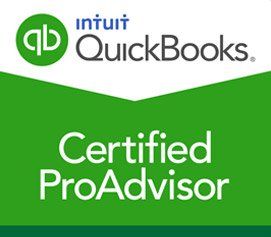Professional Gambler Tax Guide 2021
The Internal Revenue Service is always on the lookout for sources of taxation. Gambling is fertile ground for just that! Any winnings which you earn from participating in casinos, lotteries, or sports betting will be taxed by the IRS. This applies to both physical and digital gambling, of course. Whether you are a professional gambler or a casual gambler, you need to know your gambling tax rate.
Hiring a tax pro can help you lower the cut the IRS takes from your winnings. Sign up for a free consultation now.

How to be recognized as a Professional Gambler?
The IRS is not so inclined to believe that someone is a professional gambler if they don’t act like it! Otherwise, many people would take advantage of this special tax group and its benefits. Instead, the IRS requires professional gamblers to provide proof that they are gambling in order to turn a profit- not for entertainment.
We have listed below a few things which can be done in order to provide reasonable evidence that someone treats gambling as a career. Of course, you don’t have to do all of them. However, they could come in handy when providing proof to the court system or the government (local or federal) that you are indeed a professional.
- Keep records of all wins, losses, and expenses related to gambling
- Show a pattern of improvement by winning more over time
- Clearly separate gambling from other recreational activities
- Put in many hours in order to improve your gambling ability
- Interact frequently with people in the industry
- Develop a positive reputation in gambling
- Maintain credit card and bank records of money spent at gambling establishments
- Store forms given to you by gambling establishments when you win over a certain amount
- Save dated parking tickets, hotel reservations, and meal receipts from gambling trips
You can discuss whether or not what actions you have taken up to this point qualify. Simply call or text YOKE” to 210-980-0355 in order to get connected with a tax pro as soon as possible.
How are Professional Gamblers taxed?
While many people only dabble in gambling as entertainment, there are some who decide to gamble professionally. Some simply do so because they enjoy it a lot, while others find that they are good enough to make a living off the craft. For these individuals, gambling should be treated as a business.
Professional gamblers should keep a record of any income or losses which result from their gambling. This information can then be transferred on to a Schedule C form when they file their taxes. Much like a small business owner would track its gains and losses, a professional gambler tracks his or her wins and losses.
When a loss is recorded on a Schedule C, the gambler can carry that loss to their regular 1040 tax form. In addition, a professional gambler has the ability to deduct expenses from their business. Some of these business deductions include travel costs, equipment, meals, etc. The gambling tax is then based on this information, and several other aspects of the tax code.
Professional Gambling tax laws - Simplified!
As with most tax laws, the ones around professional gambling can be confusing and difficult to follow. While some laws do not apply to some states, many other states may enforce those laws. For that reason, it is best to consult a tax pro before making any final decisions on your gambling taxes.
Gambling results in either winnings or losses. Winnings are taxed by the IRS and many states across the United States. They must always be declared as income on an individual’s tax return, or they may face serious consequences. Losses can often be subject to itemized deductions. For recreational players, this deduction is limited to the amount of winnings declared. Because professional gamblers are treated as self-employed businesses, the amount which can be deducted is a bit different. This will be covered in the next section.
Wins and losses cannot be carried over. They must only be reported in the years in which they occur. This means that, if you win $20,000 in December 2019, those winnings will have to be reported for 2019. If you lose $5,000 in 2020, then you cannot bring that money forward into 2021.
What can Professional Gamblers deduct from their taxes?
The IRS considers deductible expenses to be “ordinary and necessary” to “carrying on any trade or business.” This is a fairly broad definition, but it is one which any smart business owner will take advantage of. Some of the items which you deduct can also apply to digital gambling.
- Office expenses (Internet, Equipment, etc)
- Tax Advice (We suggest you take advantage of that!)
- Record keeping expenses
- Travel and meal costs during gambling events and tournaments
- Wages paid to individuals for help
- Coaching expenses
As long as the IRS sees your spending as reasonable, it will allow deductions for items such as these. What is “reasonable?” Using travel as an example, riding economy to a tournament would be seen as a reasonable expense. However, riding a private jet to reach the same destination would be very unreasonable to the IRS.
If you have any questions, never hesitate to reach out to a tax professional to help! Professional gamblers often have to jump through a lot of hoops in order to retain the bulk of their earnings. Having Yoke Tax handle the numbers for you allows you to focus on what really matters: winning!
What does a Professional Gambler need to watch out for?
Comps: Many professional gamblers may accept rewards from benefactors. These rewards can take the form of cars, extravagant activities and the like. In these cases, it is safer to claim their market value as income. There are rare exceptions which a tax pro could identify.
Staking Agreements: Benefactors may financially support a professional gambler in exchange for a percentage of the winnings. The amount which is withheld depends on the benefactor. If they are a professional gambler and the game is played in U.S. borders, then up to 30% can be withheld. However, if the benefactor is a foreigner or an American outside U.S. borders, then the taxes cannot be withheld.
Online Winnings: Do not treat online winnings differently from physical winnings. A win in an online casino is just as legitimate as one from a live casino in the eyes of the IRS. In either case, the winnings must be reported.
If you want to maximize your winnings and minimize how much in taxes are taken from you, then connect with Yoke Tax. Sign up for a
free consultation now



